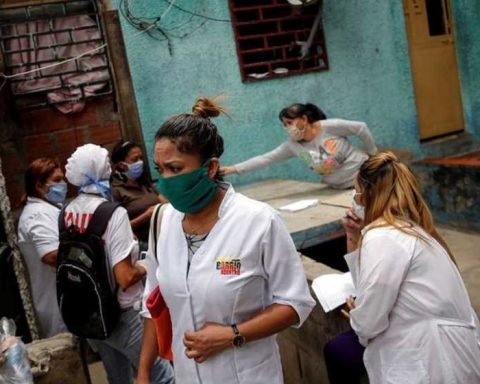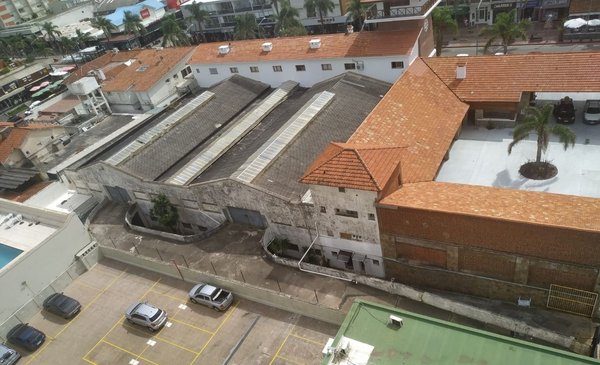A joint report by the World Health Organization and the UN agency for children (Unicef), released within the framework of the 2023 World Water Conference taking place in New York, specifies that half of all establishments of health in the world, where it is especially important that there are adequate hygiene practices, lack soap and water or a hydroalcoholic solution to disinfect the hands
The social and economic consequences of inadequate water and sanitation services are devastating. Without these essential services, people fall ill, children, and especially girls, suffer from learning difficulties, and entire communities can be displaced due to water scarcity.
The World Health Organization (WHO) and the United Nations Children’s Fund (Unicef) make an appeal all nations incorporated into the UN to accelerate once and for all measures to make water, sanitation and hygiene a reality for all, expressed in a joint report released in the framework of the World Conference on Water, which is being held in New York, after 50 years that the problem has not been analyzed in a forum of this caliber.
*Read also: Only putrefied water comes out of the pipes of Villa Crepuscular (Lara)
According to the NGO Doctors for Health, during 2022 in Venezuela almost 60% of hospitals did not have running water, while 1.2 hours was the average number of hours spent without light in the week, according to data consolidated in the National Survey of Hospitals presented on March 1.
Every year, according to WHO-Unicef, at least 1.4 million people, many of them children, die from preventable causes related to unsafe water and poor sanitation. Currently, for example, cholera is spreading in countries where there has not been an outbreak in decades.
Half of all healthcare facilities in the world, where proper hygiene practices are especially important, lack soap and water or a hydroalcoholic solution to disinfect hands.
*Read also: What you should know about diphtheria after confirmed cases in Bolívar state
The figures are alarming: worldwide, 2 billion people lack safe drinking water and 3.6 billion people, almost half the world’s population, use sanitation services that do not treat human waste.
Collectively, the world needs to at least quadruple current rates of progress to achieve universal access to safely managed water, sanitation and hygiene (WASH) services by 2030. Progress needs to be even faster in fragile contexts and in the poorest countries, in order to protect people’s health and future.
Government leadership to drive change
WHO and UNICEF urge governments to take action with the support of United Nations system agencies, multilateral partners, the private sector and civil society organizations:
Develop a plan to increase political commitment to safely managed drinking water, sanitation and hygiene, including outreach to leaders at all levels of government and communication with civil society groups;
Formulate a strategy to strengthen the governance and institutions necessary to provide these services, for example, by establishing autonomous regulatory bodies that ensure compliance with health regulations and that periodically publish the conclusions of their work.
Financing:
- Formulate clear policy objectives to guide WASH funding decisions;
- Develop financing strategies, including cost calculations, that take into account the needs of different regions and population groups;
- Increase public spending on WASH to recognize its value as a public good, and
- Encourage providers to improve their performance in order to satisfy users and recover costs, for example by reducing service interruptions and water losses and improving rate structures and collection efficiency.
Invest in people and institutions:
- Develop a plan to build a stronger, more diverse and gender-balanced workforce with stronger WASH sector skills;
- Build strong and competent institutions and a capable and motivated workforce, and
- Support the growth of professionalized service delivery, particularly in small and rural systems, by providing capacity development for underpaid and inadequately trained staff.
Data and evidence for decision-making:
- Promote the institutionalization of data collection and monitoring within national systems;
- Use consistent methodologies for data collection and monitoring, and
- Transparently share and use the information collected to guide decision-making processes.
*Read also: Doctors for Health: Shortage of supplies in operating rooms was 72% in January
Foster innovation and experimentation in WASH:
- Develop supportive government policies and regulations that promote WASH innovation and experimentation, and
- Foster collaboration between the Government, civil society groups and private sector actors with a view to devising and implementing new solutions.
- Investments and decisive actions in water, sanitation and hygiene can be transformative elements. The key to unlocking universal access to WASH is before our eyes; Now we just have to take advantage of it.
Post Views: fifty

















